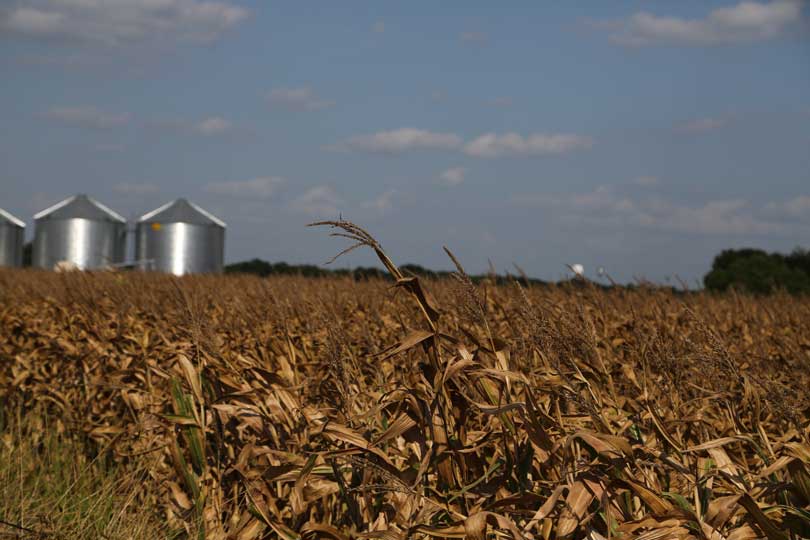By Jessica Domel
Multimedia Reporter
The U.S. Department of Agriculture is allocating at least $12 billion to help American farmers hurt by new tariffs and recent trade tensions.
U.S. Secretary of Agriculture Sonny Perdue announced the funding Tuesday, July 24.
“This administration will not stand by while our hard-working agricultural producers bear the brunt of unfriendly and illegal tariffs enacted by foreign nations,” Perdue said.
The $12 billion correlates to the estimated $11 billion impact of new tariffs implemented by China, the European Union, Mexico, Canada and other countries after the U.S. began levying a 25 percent tariff on imported steel and a 10 percent tariff on imported aluminum.
When implemented, President Donald Trump said the steel and aluminum tariffs are needed for national security reasons.
“For decades, China has engaged in unfair trade practices and engaged in the forced transfer or outright theft of intellectual property,” Perdue said. “It’s clear to everyone that President Trump has gotten China’s attention like never before. The programs are a firm statement that other nations cannot bully our agricultural producers to force the United States to cave in.”
The $12 billion will go to three programs under the Commodity Credit Corporation (CCC), a depression-era program that does not require Congressional-approval.
“This short-term funding will help farmers and ranchers who rely on export markets stay in business as the administration works to develop and obtain new markets,” Texas Farm Bureau President Russell Boening said.
The Market Facilitation Program will provide payments incrementally to soybean, sorghum, corn, wheat, cotton, dairy and hog farmers to help manage disruptive markets, deal with commodity surplus and expand new markets.
Through the Food Purchase and Distribution Program, USDA will purchase surplus-affected commodities like fruits, nuts, rice, legumes, beef, pork and milk for distrbution to food banks and USDA nutrition programs.
The Trade Promotion Program will assist, in conjunction with the private sector, in developing new export markets.
“We appreciate the administration and USDA taking this action to support American agriculture, but certainly, farmers and ranchers would rather sell their products to domestic and export markets through good trade relationships,” Boening said. “We support the administration’s continued talks with our trading partners and look forward to both new and improved markets.”
USDA is expected to release details on program sign up and how the funding will be distributed by Labor Day.
“We are working out the specific details and will be publishing that as part of a rule-making action. It will have our estimated rates,” Dr. Rob Johannson, USDA chief economist, said.
American Farm Bureau Federation President Zippy Duvall said the agricultural assistance is a welcome measure of temporary relief to farmers and ranchers experiencing the financial effects of the trade war.
“This should help many of our farmers and ranchers weather the rough road ahead and assist in their dealings with their financial institutions,” Duvall said. “We are grateful for the administration’s recognition that farmers and ranchers needed positive news now and this will buy us some time. This announcement is substantial, but we cannot overstate the dire consequences that farmers and ranchers are facing in relation to lost export markets. Our emphasis continues to be on trade and restoring markets, and we will continue to push for a swift and sure end to the trade war and the tariffs impacting American agriculture.”


What about cattle ranchers?
What about every other business that is losing money due to Trump’s policies? Do we give them a hand out as well? Only fair that we do. Who cares about the deficit? It’s only money, right?
What about small family farms? Why do the mega corporations get the money? Maybe big business and our federal government are tied together…naw, that couldn’t happen here in America could it? It is it does and I do not know of a way short of anarchy to stop it.